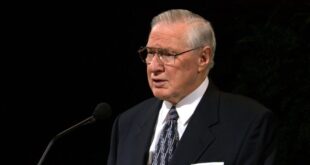The Outdated Polygamy Criticism
In today’s world of rapid information exchange and evolving social norms, it’s crucial that we regularly reassess our views on various institutions, including religious organizations. One group that continues to face undue criticism based on outdated practices is the Latter-day Saints church, commonly known as the Mormon church. The primary point of contention? Polygamy – a practice that was officially discontinued by the church over a century ago.
As we stand here in 2024, it’s perplexing to see the continued fixation on this historical issue. The practice of polygamy within the Latter-day Saints church was addressed and resolved generations ago. Forward-thinking leaders within the church recognized the problems associated with polygamy and took decisive action to end it. This demonstrates the church’s ability to evolve and adapt, a quality that should be commended rather than ignored.
Historical Context and Perspective
To put this into perspective, let’s consider some historical context. Many religious institutions have dark chapters in their past. For instance, during the witch trials of the 16th and 17th centuries, some Christian denominations were involved in the execution of individuals accused of witchcraft. These were horrific events, yet we don’t see constant criticism of these churches based on these historical actions.
The Witch Trials: A Dark Chapter in Christian History
During the witch trials of the 16th and 17th centuries, some Christian denominations were involved in the execution of individuals accused of witchcraft. These persecutions reached their peak during the early modern period, resulting in the deaths of thousands of people, predominantly women.
The infamous Salem witch trials in colonial Massachusetts saw 19 people executed by hanging and one pressed to death between 1692 and 1693. In Europe, the witch hunts were even more extensive, with estimates suggesting that between 40,000 and 60,000 people were executed for witchcraft between 1400 and 1782.
The Spanish Inquisition and Religious Persecution
Another example is the Spanish Inquisition, established in 1478, which aimed to maintain Catholic orthodoxy in the Spanish kingdoms. This resulted in the expulsion, forced conversion, or execution of Jews and Muslims. The Inquisition’s actions led to widespread suffering and the loss of countless lives.
The Crusades: Religion-Driven Warfare
The Crusades, a series of religious wars primarily fought between Christians and Muslims in the medieval period, resulted in significant loss of life and cultural destruction. These campaigns, often sanctioned by the Catholic Church, lasted for centuries and had far-reaching consequences that still impact geopolitics today.
Reflection on Historical Actions
These were horrific events that caused immense suffering and loss of life. They represent some of the darkest chapters in the history of organized religion. Yet, we don’t see constant criticism of these churches based on these historical actions. Modern-day Catholics, Protestants, or other Christian denominations are not held personally responsible for the actions of their religious ancestors.
Learning from History
It’s crucial to acknowledge these historical events and learn from them. However, it’s equally important to recognize that most religious institutions have evolved significantly since these dark periods. They have reformed their practices, apologized for past wrongs, and many now actively work towards promoting peace, understanding, and human rights.
Current Religious Persecution: A More Pressing Issue
What’s more concerning is that while we fixate on resolved historical issues, we often overlook present-day human rights violations committed in the name of religion. In some parts of the world, LGBTQ+ individuals face severe persecution, including capital punishment, sanctioned by certain religious authorities. Women are stoned to death for their sexual orientation, and gay men are thrown from buildings – these are not historical events, but ongoing atrocities.
LGBTQ+ Persecution
In numerous countries, particularly those with strict interpretations of religious law, LGBTQ+ individuals face severe persecution:
- Capital Punishment: In several nations, including Iran, Saudi Arabia, Yemen, and parts of Nigeria, homosexuality is punishable by death. These laws are often justified through religious interpretations.
- Imprisonment: Many countries criminalize same-sex relationships, leading to lengthy prison sentences for LGBTQ+ individuals.
- Corrective Rape: In some communities, lesbian women are subjected to “corrective rape,” a horrific practice aimed at “curing” their sexual orientation.
- Forced Conversions: LGBTQ+ individuals are sometimes forced to undergo “conversion therapy,” a widely discredited and harmful practice often rooted in religious beliefs.
Women’s Rights Violations
Women in various parts of the world face severe oppression justified by religious doctrines:
- Honor Killings: In some cultures, women suspected of bringing “dishonor” to their families through perceived sexual indiscretions (which can include being a victim of rape) may be killed by family members.
- Forced Marriages: Young girls are often forced into marriages, a practice sometimes defended on religious grounds.
- Female Genital Mutilation: This harmful practice, which has no medical benefits and can cause severe health issues, is often justified through religious or cultural beliefs.
- Restricted Freedom of Movement: In some societies, women are not allowed to leave their homes without a male guardian, severely limiting their personal freedom and opportunities.
Religious Minorities
Religious minorities often face persecution in countries where one religion dominates:
- The Rohingya in Myanmar: This Muslim minority group has faced severe persecution, including mass killings and forced displacement.
- Christians in North Korea: Practicing Christianity is illegal in North Korea, with believers facing imprisonment, torture, and execution.
- Uighur Muslims in China: Reports indicate mass detention, forced labor, and cultural suppression of this minority group.
The Urgent Need for Action
These ongoing human rights violations, often perpetrated or justified in the name of religion, represent a pressing global crisis. Unlike historical issues that have been resolved, these are current, active problems causing immense suffering to millions of people worldwide.
- International Pressure: There’s a need for increased diplomatic pressure on countries that allow or encourage these human rights violations.
- Education and Awareness: Many people remain unaware of the severity and scope of these issues. Raising awareness is crucial for mobilizing global action.
- Support for Victims: Organizations working to protect and support victims of religious persecution need more resources and support.
- Promoting Progressive Religious Voices: It’s crucial to amplify the voices of religious leaders and communities that advocate for human rights and oppose these forms of persecution.
By focusing our attention and efforts on these current issues, we can work towards creating meaningful change and protecting vulnerable individuals and communities. While it’s important to understand and learn from history, addressing ongoing human rights violations should be our primary concern when discussing the intersection of religion and human rights in the modern world.
The Need for a Shift in Focus
The disproportionate focus on the Latter-day Saints church’s long-abandoned practice of polygamy seems misplaced in light of these current issues. It raises the question: why are we so caught up in criticizing a resolved historical practice while more pressing matters demand our attention?
It’s time for a shift in perspective. We should judge religious institutions based on their current practices, teachings, and contributions to society, not on outdated policies that have long since been corrected. The Latter-day Saints church, like many institutions, has shown the capacity for change and growth. Acknowledging this progress is crucial for fostering a more understanding and inclusive society.
Moving Forward: A Call to Action
As we move forward, let’s channel our energy into addressing ongoing human rights violations and promoting positive change where it’s needed most. By focusing on current issues rather than dwelling on resolved historical practices, we can contribute more effectively to creating a just and equitable world.
In conclusion, it’s high time we move past the polygamy narrative when discussing the Latter-day Saints church. Instead, let’s engage in more productive conversations about how religious institutions can continue to evolve and positively impact our communities in the present day. After all, progress is made by looking forward, not by constantly glancing back at issues long resolved.




